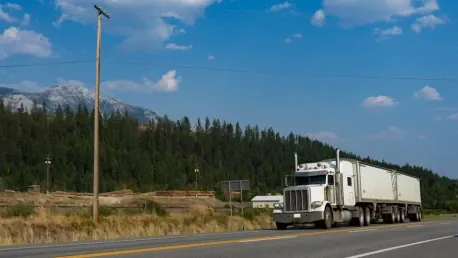The journey toward fully autonomous trucks has been picking up pace, and Torc Robotics is firmly in the driver’s seat, steering the future of long-haul trucking. Founded in 2005, Torc has amassed more than 19 years of expertise in developing safety-critical self-driving applications, positioning itself as a formidable player in the autonomous vehicle (AV) industry. With the strong backing of Daimler Trucks North America (DTNA), Torc is transitioning from testing to productization, with a keen focus on delivering autonomous trucks for long-haul applications within the United States.
At the heart of Torc’s strategy lies a targeted geographical focus on the Dallas/Fort Worth region in Texas and Ann Arbor, Michigan. These areas offer a confluence of local talent and strategic logistics routes like Interstate 35, which can support the company’s rigorous testing and eventual commercial deployment. Torc’s recent achievements have paved the way for this transition. The company successfully validated its autonomous trucks in closed-course environments at speeds of 65 miles per hour, simulating real-world conditions without a driver. This accomplishment marks a critical milestone, demonstrating that their technology is ready for scalable production.
Strategic Collaborations and Technological Advancements
Torc Robotics’ collaboration with DTNA has been instrumental in advancing its autonomous trucking technology. The partnership leverages Daimler’s Freightliner Cascadia platform, integrating advanced artificial intelligence, system architecture, and safety engineering into the autonomous trucks. This integrated approach ensures that the trucks are not only capable but also safe and reliable for commercial use. As part of their strategic move toward commercialization, Torc is reallocating resources from Albuquerque, New Mexico, and intends to hire over 100 positions each in Dallas and Ann Arbor.
The company’s Chief Commercial Officer, Andrew Culhane, emphasized the importance of working closely with existing fleet partners to streamline operations for autonomous trucks. This collaboration involves refining various aspects such as inspections, job roles, launch and recovery processes, and mission control. Although specific fleet partners for Interstate 35 testing have not been named, Torc’s website mentions key partnerships with industry giants like Schneider and C.R. England. These alliances are crucial for ensuring a seamless integration of autonomous trucks into existing logistics frameworks, thereby enhancing operational efficiency and safety.
The Road to Commercial Driverless Operations
As Torc Robotics nears its goal of commercial driverless operations by 2027, the company is gearing up for live driverless operations on the freight lane between Dallas/Fort Worth and Laredo. This particular route is strategically significant, serving as a critical artery for freight movement in the region. Torc plans to ramp up its visibility and activity on this route toward the end of the year and into early next year, laying the groundwork for a robust commercial launch.
To realize this vision, Torc is focusing on building a solid technological foundation. The shift to production-intent hardware and software signifies that the company is ready for scalable product release. This includes not only the autonomous driving technology itself but also the infrastructure to support widespread adoption. By investing in localized expertise and strategic logistics routes, Torc is positioning itself to navigate the challenges and opportunities of the autonomous trucking industry effectively.
Conclusion
The journey toward fully autonomous trucks is accelerating, with Torc Robotics at the forefront of long-haul trucking innovation. Established in 2005, Torc has over 19 years of expertise in developing safety-critical self-driving systems, cementing its role as a key player in the autonomous vehicle industry. Supported by Daimler Trucks North America (DTNA), Torc is moving from the testing phase to productization, focusing on delivering autonomous trucks for long-haul use in the U.S.
Torc’s strategic focus areas include the Dallas/Fort Worth region in Texas and Ann Arbor, Michigan. These locations offer a blend of local talent and essential logistics routes, such as Interstate 35, which enhances the company’s robust testing and future commercial deployment. Recently, Torc achieved significant milestones by validating its autonomous trucks in closed-course environments, reaching speeds of up to 65 miles per hour without a driver. This achievement demonstrates that their technology is ready for scalable production, marking a crucial step forward in the journey toward fully autonomous trucking.









